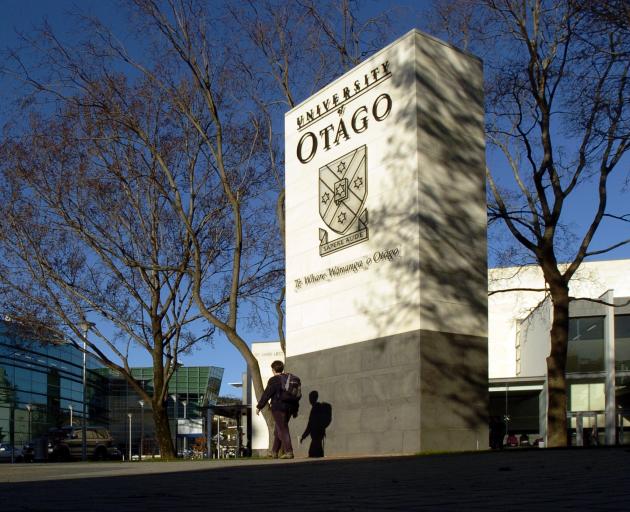
And it is disappointing news for one of them.
Science communication and geology have been going through "management of change" processes, and staff and students were informed of the outcome yesterday.
Science communication will be disestablished as a department from next year and staffing will be reduced.
There are 6.5 full-time-equivalent (FTE) staff in the department.
A 0.5 FTE fixed-term doctoral position will end at the expiry of the current contract; one teaching fellow position (1.0 FTE) will be disestablished; and three FTE academic positions will be disestablished by voluntary redundancy.
Student Brady Clark said staff and students were "hugely disappointed" by the decision.
"It seems what they initially proposed has been pushed through," Mr Clark said.
"By letting go of the more creative aspects of the programme, it loses what made it so different from similar courses around the world.
"It becomes just another programme."
He was relieved to hear there would be support structures in place for present students to complete their degree, but there were still a "few pieces of the puzzle" to be worked out, Mr Clark said.
Pro-vice-chancellor of the division of sciences Prof Richard Barker said that "in the long term we hope to be able to resume part of the science communication programme".
"I would like to publicly thank everyone who took the time to make a submission and assure them that their feedback and ideas were valuable and in some cases resulted in adjustments to the proposals," Prof Barker said.
"I am aware a change process like this can be difficult for affected staff and students and we are offering support as needed."
The postgraduate certificate and postgraduate diploma in science communication will be retained, as will scope for postgraduate supervision.
New enrolments have been suspended.
"All enrolled students will be able to complete their qualifications," Prof Barker said.
Support would be provided to help them through the transition period, including retaining staff able to provide specialised support on fixed-term contracts, he said.
"If the new model proves viable it may be possible to resume one or both of the two suspended master’s programmes, but with student numbers capped," Prof Barker said.
Meanwhile, there have been slight changes made to the original restructuring proposal for geology.
There are 12.85 FTE academic staff and 9.35 FTE professional staff at present, and academic staffing will be reduced by 2.0 FTE and professional staff by 2.6 FTE.
It was originally proposed that two full-time equivalent (FTE) academic roles be disestablished and technical staffing be reduced by 3.65 FTE roles.
"It is not anticipated that teaching will be affected by these changes, but we will work with students individually if there are any unanticipated impacts relating to teaching or supervision," Prof Barker said.
"The processes highlighted how well-regarded both departments, their staff and high-quality teaching programmes are."
Earlier this year, 107 university staff accepted voluntary redundancies.
Of the 107 accepted, 36 came from health science, 14 from science, eight from commerce, 10 from humanities, 22 from operations and 17 from academic, external engagement, financial services and research divisions.











